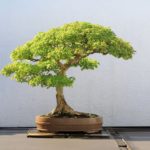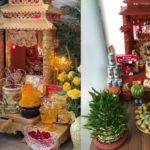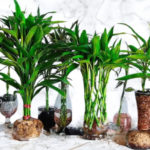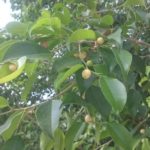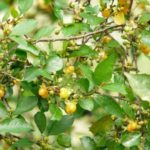When talking about feng shui plants, it’s not just about what type of plant or color is suitable for which element, but also how they are planted, their height, size, and placement contribute to the feng shui value of the plants. A good feng shui plant, if not arranged or placed correctly, can become bad feng shui. Here are some examples of plants that are good feng shui but can turn bad:
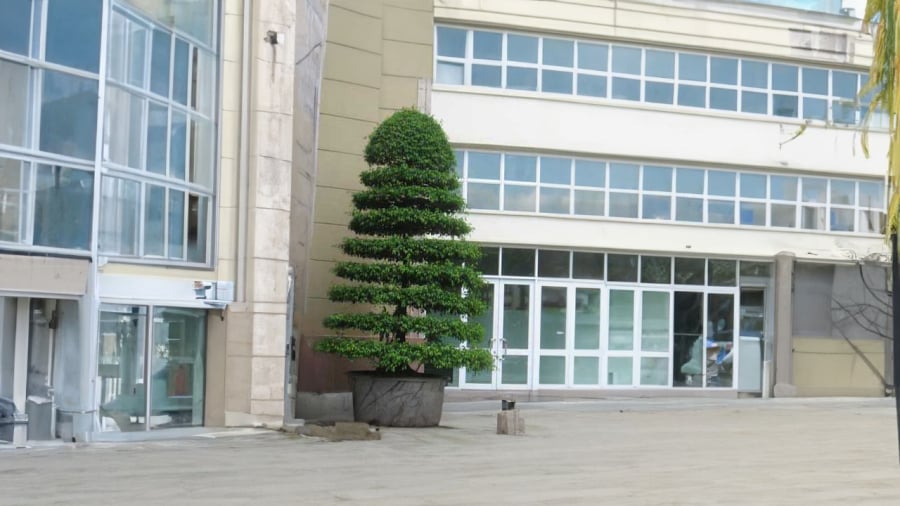
Bonsai plants that are too large become solitary trees
Bonsai plants are believed to bring luck and prosperity to the homeowner. Bonsai plants are also easy to care for and trim and stay green all year round. Bonsai plants symbolize a harmonious and abundant family, with happy children and a harmonious couple. That’s why planting bonsai plants in front of houses or offices is very popular.
However, bonsai plants can grow large and their canopy can become too wide and tall. If not pruned and allowed to grow too large and cover the house, they can darken the house and absorb the positive energy of the homeowner. This harms the health and gradually depletes the energy of the homeowner. So, bonsai plants that are beautiful in feng shui can become bad feng shui because of improper care. Especially, planting only one bonsai plant is not good because it will absorb the positive energy, so you need to plant two or more bonsai plants to balance the energy in the living space. When bonsai plants grow too large, they can block the air flow in front of the house, causing property assets to disperse.
Therefore, planting bonsai plants requires attention to pruning and avoiding the plants becoming solitary trees, as large trees deplete the positive energy.
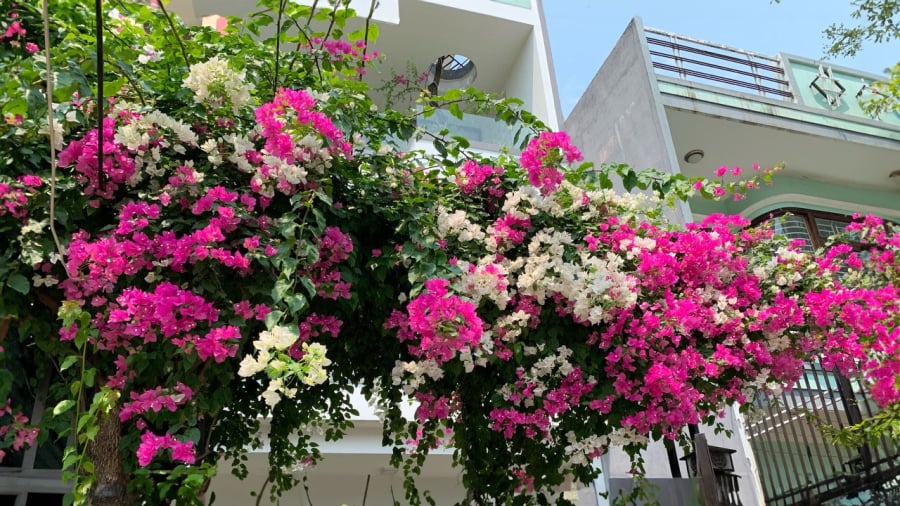
Overgrown arbors, paper flowers, feather reed grass that block the path
Many families choose to plant arbors and flowers at the entrance of their houses. They often choose paper flowers, tulips, roses, lilies, orchids, chrysanthemums and peonies… These flowers not only create beautiful landscapes but also attract good luck to the homeowner and bring fresh air.
According to feng shui, when these arbors and flowers cover and block the house, especially when the climbing plants in front of the house completely obstruct the view, they hinder the flow of air and block the path of wealth. However, many homeowners believe that the more dense the flowers are, the better. According to feng shui, these arbors should form a harmonious row with the wall or a vaulted roof, but should not be dense and obstruct the air flow. Moreover, when arbors and plants become too dense, they can become a refuge for mosquitoes and harmful reptiles. So, you need to trim them neatly and let them twist along the wall to create a well-ventilated, particularly in front of the house. Arbors planted at the entrance should also not be too low, making people have to bend their heads when they walk, which is not good for the feng shui of the house. Such arbors will darken the bright path and disperse the wealth.
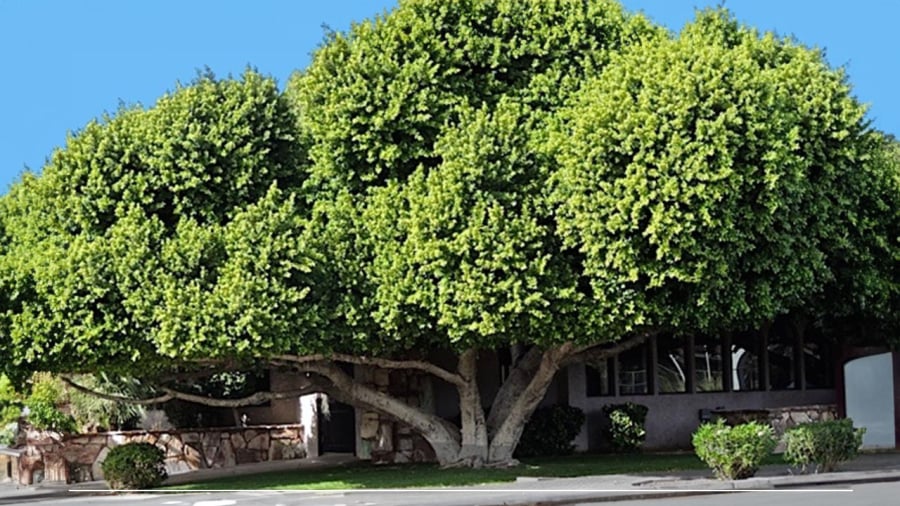
Large trees becoming solitary trees in front of the door
Some trees, such as ironwood trees, tamarind trees, phoenix trees… when properly planted, bring both beauty and good luck. But if you let them become solitary trees in front of the house, they will create an imbalance of positive energy, creating negative energy, blocking the path of wealth. Ancient people greatly avoided solitary trees (meaning a large tree) in front of the house because a solitary tree represents a lonely crouching ghost without bringing good luck. A large solitary tree in front of the door will also create an imbalanced space and a feeling of loneliness and lack of harmony. Large trees covering the wall of the house also pose a risk of darkening the space and blocking the air flow in front.
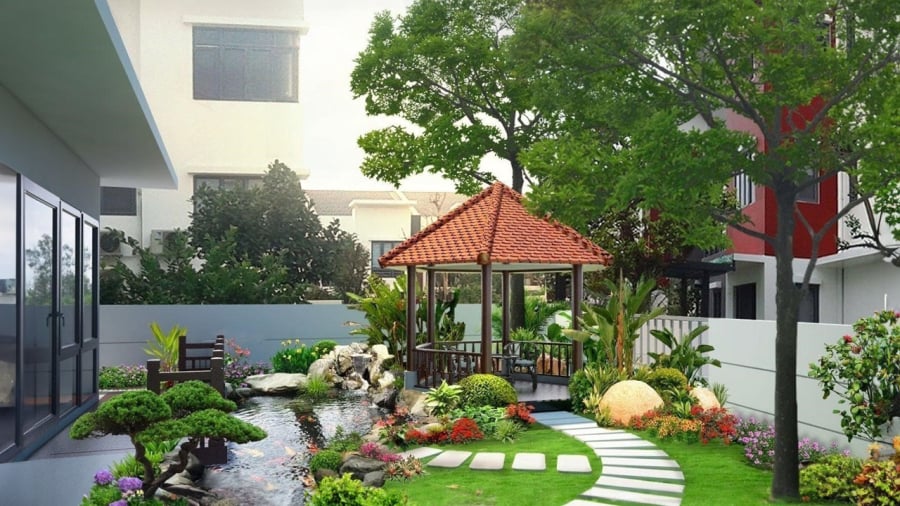
Plants on the right side growing taller than the left side
There are many types of plants planted in front of the house that bring good luck, but some of them can grow very tall over time, for example, orchids, magnolias… When you plant them without paying attention, if they grow taller than the left side, they will no longer be good in terms of feng shui.
According to feng shui, the right side represents the white tiger and the left side represents the blue dragon. In feng shui, the blue dragon should always be higher than the white tiger for harmony. However, when the feng shui plants you plant on the right side of the house grow too tall and exceed the threshold, they disrupt this feng shui rule. So, at first, the plants have very good meanings, but later they disrupt the feng shui and have a negative impact on the homeowner.
That’s why when you have planted plants with feng shui meanings, you should pay attention to the above things to avoid harming your family’s fortune.
This information is for reference only.
























